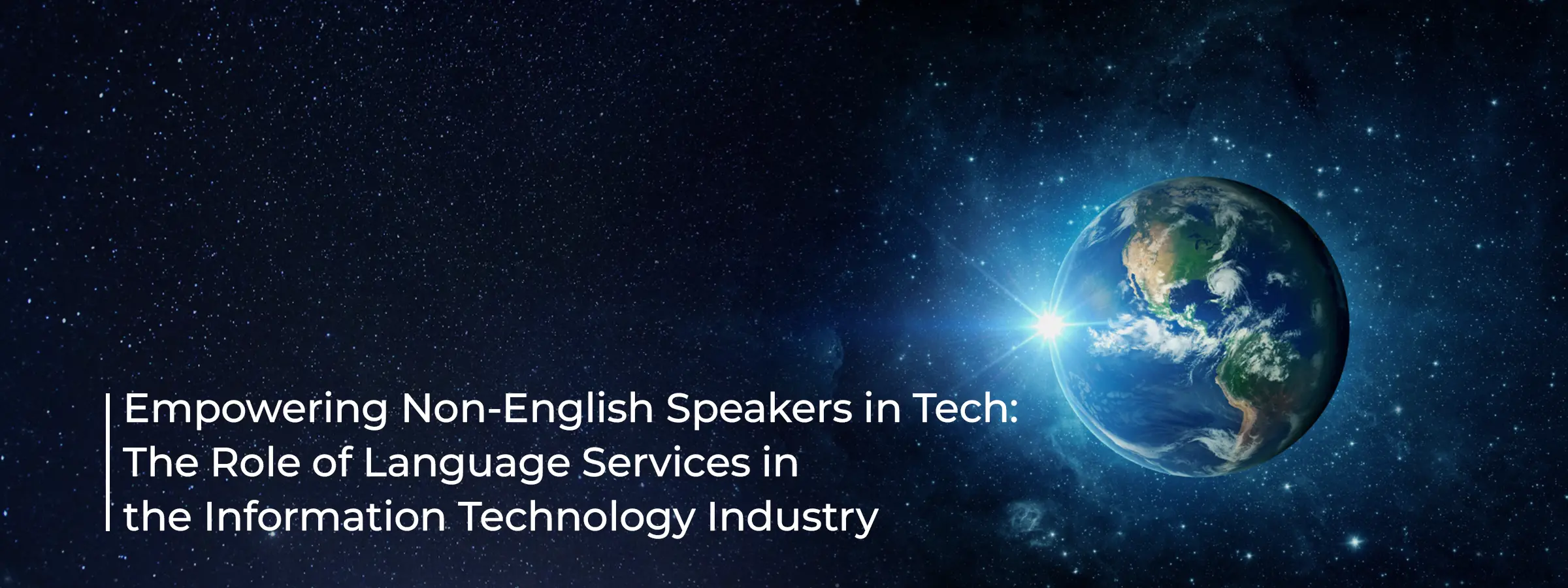
In the sprawling, interconnected world of technology, the dominance of the English language often casts a shadow over the vast diversity of global users. As the information technology (IT) industry continues to expand its horizon, the imperative to embrace and empower non-English speakers has never been more critical. This necessity brings to light the indispensable role of language services - translating not just words but also the essence of technology to every corner of the globe.
The digital divide, which encapsulates the disparity between the digitally enabled and those on the fringes of technology, is not just about access to devices or the internet; it's profoundly about language accessibility. As IT companies venture into new markets, the challenge transcends the mere translation of content. It involves culturally adapting products, services, and communication to resonate with the local ethos, making technology genuinely inclusive.
Localisation is the core of empowering non-English speakers. It involves a meticulous process of adapting software or content to meet the linguistic, cultural, and technical requirements of a target market. It's about ensuring that a user in Tokyo can experience software with the same ease and relevance as a user in Toronto. Localization enhances user interface and experience, making technology accessible, user-friendly, and culturally relevant.
Imagine the frustration of encountering a technical glitch and not being able to navigate customer support due to language barriers. Multilingual support dismantles these barriers, offering assistance and resources in the user's native language. It’s a testament to the industry’s commitment to inclusivity, ensuring that help is just a conversation away, regardless of language.
As we delve deeper into the digital age, content remains king. However, the reign of content is only as strong as its reach and comprehensibility. Tailoring content for global audiences through translation and localisation ensures that valuable information, whether it's user manuals, FAQs, or educational resources, is accessible to all. This practice empowers users and fosters a sense of belonging and community among diverse user groups.
The advent of artificial intelligence (AI) and machine learning has revolutionised language services in the IT industry. Technology is at the forefront of breaking down linguistic barriers, from automated translations that learn and improve over time to voice recognition software that can understand and interpret multiple languages. These advancements are making services more efficient, accessible, and personalised, enhancing the user experience for non-English speakers.
The role of language services in empowering non-English speakers in tech underscores a broader
movement towards inclusivity and diversity within the IT industry. By prioritising language
accessibility, companies expand their market reach and contribute to a more equitable digital
landscape. This transformation journey goes beyond the binary of 0s and 1s, embracing the rich
tapestry of human languages and cultures.
In conclusion, as we stand at the cusp of a new technological era, the importance of language
services cannot be overstated. It's a pivotal element in democratising technology, ensuring that the
future of tech is diverse, inclusive, and accessible to all, irrespective of language. Through its
embrace of language services, the information technology industry is not just coding software; it's
scripting a more inclusive narrative for the digital world.
© 2024 WHITE GLOBE GROUP PVT LTD